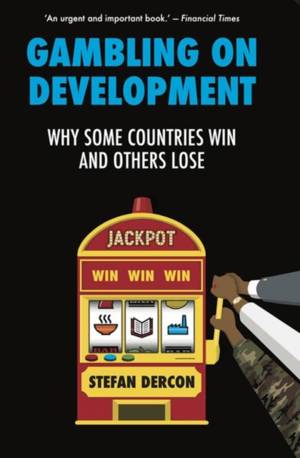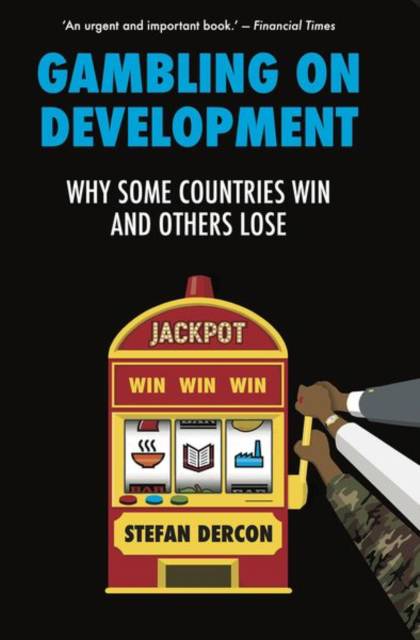
Door een staking bij bpost kan je online bestelling op dit moment iets langer onderweg zijn dan voorzien. Dringend iets nodig? Onze winkels ontvangen jou met open armen!
- Afhalen na 1 uur in een winkel met voorraad
- Gratis thuislevering in België vanaf € 30
- Ruim aanbod met 7 miljoen producten
Door een staking bij bpost kan je online bestelling op dit moment iets langer onderweg zijn dan voorzien. Dringend iets nodig? Onze winkels ontvangen jou met open armen!
- Afhalen na 1 uur in een winkel met voorraad
- Gratis thuislevering in België vanaf € 30
- Ruim aanbod met 7 miljoen producten
Zoeken
€ 40,45
+ 80 punten
Uitvoering
Omschrijving
In the last thirty years, the developing world has undergone tremendous changes. Overall, poverty has fallen, people live longer and healthier lives, and economies have been transformed. And yet many countries have simply missed the boat. Why have some countries prospered, while others have failed? Stefan Dercon argues that the answer lies not in a specific set of policies, but rather in a key "development bargain," whereby a country's elites shift from protecting their own positions to gambling on a growth-based future. Despite the imperfections of such bargains, China is among the most striking recent success stories, along with Indonesia and more unlikely places, such as Bangladesh, Ghana and Ethiopia. Gambling on Development is about these winning efforts, in contrast to countries stuck in elite bargains leading nowhere. Building on three decades' experience across forty-odd countries, Dercon winds his narrative through Ebola in Sierra Leone, scandals in Malawi, beer factories in the DRC, mobile phone licences in Mozambique, and relief programs behind enemy lines in South Sudan. Weaving together conversations with prime ministers, civil servants and ordinary people, this is a probing look at how development has been achieved across the world, and how to assist such successes.
Specificaties
Betrokkenen
- Auteur(s):
- Uitgeverij:
Inhoud
- Aantal bladzijden:
- 360
- Taal:
- Engels
Eigenschappen
- Productcode (EAN):
- 9781787385627
- Verschijningsdatum:
- 1/08/2022
- Uitvoering:
- Hardcover
- Formaat:
- Genaaid
- Afmetingen:
- 140 mm x 203 mm
- Gewicht:
- 657 g

Alleen bij Standaard Boekhandel
+ 80 punten op je klantenkaart van Standaard Boekhandel
Beoordelingen
We publiceren alleen reviews die voldoen aan de voorwaarden voor reviews. Bekijk onze voorwaarden voor reviews.











